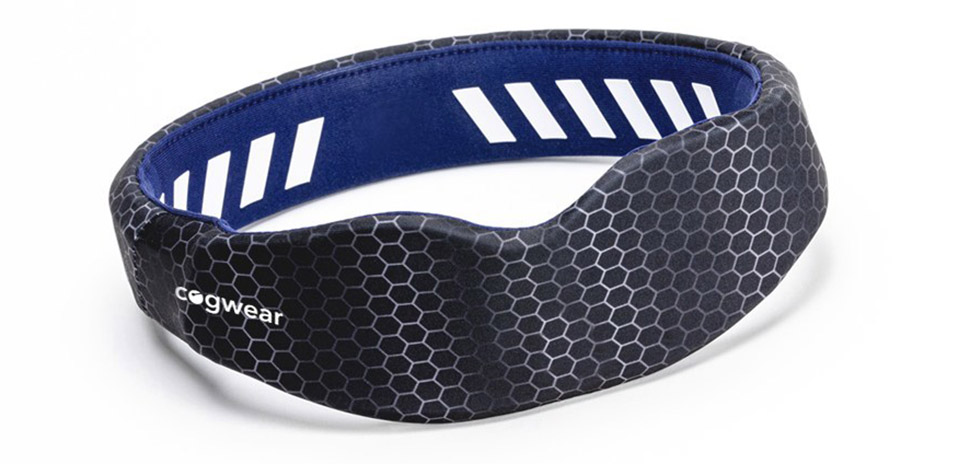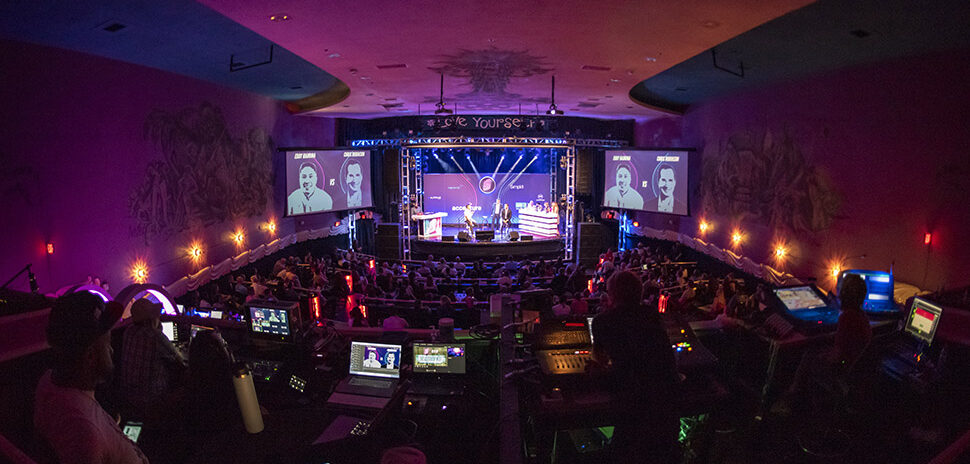A new “neuromarketing headband” may help advertisers know what viewers really think of their ads—and a Dallas-based company is all in.
GlassView, a global independent video advertising distribution and performance platform headquartered in Dallas, has made a “strategic investment” in Cogwear, a brain technology company based in Philadelphia.
GlassView aims to advance Cogwear’s patented “emotion-sensing” headband, which when worn is said to sense emotions and other physiological feedback directly from the brain in real time. GlassView says the headband “can gauge audience affinity for products and brands shown in digital video advertisements, so that advertisers can optimize creative content.”
Testing the headband—and digital ads—on ‘thousands’ of volunteers
As part of the investment agreement, GlassView plans to outfit “thousands of volunteers” with 5,000 of Cogwear’s headbands in the coming 12 to 36 months. While wearing the headbands, the volunteers will stream digital advertising content.
GlassView says that as each ad plays, the devices will collect “clinical-grade neurofeedback” from each volunteer. The company expects to acquire “tens of millions of anonymized data points” during the initial U.S. testing.
The rollout may have the potential of going beyond the U.S. GlassView, which launched in 2014, has offices in Tokyo, Singapore, London, and Paris, among other locations, including New York CIty.
An alternative to eye tracking and more

James G. Brooks, Jr., founder and CEO of GlassView [Photo: LinkedIn]
Other biodata to test advertising is already in use, including eye tracking technology. But GlassView says while those can test viewers’ attention, they can’t track affinity—how the viewer actually feels about the ad.
“Cogwear’s headband directly measures a user’s engagement, emotion, and memory straight from the brain,” GlassVIew says.
James G. Brooks, Jr., Glassview’s founder and CEO, says the game has changed.
“Engagement alone is dead,” Brooks said in a statement. “From now on, emotion will be the most important metric in advertising. With neuro-data we can shape campaigns and truly connect with people at scale. It will create a better online experience for both brands and consumers.”
Predicting the behavior of ‘millions of people’
Dr. Michael L. Platt, Cogwear’s co-founder, has become a new member of GlassView’s advisory board. He’s also the director of the University of Pennsylania’s Wharton Neuroscience Initiative.
“An ad can’t be effective if it doesn’t first engage the consumer,” Platt said in the statement. “But afterward, it must make them feel.”
“Studies have repeatedly shown that directly measuring the brain for engagement, emotion, and memory in even just a handful of volunteers can predict the behavior of millions of people along a variety of dimensions from click-through-rates to sales,” he added. “It’s the trifecta of consumer psychology.”
GlassView says it will work with its customers to “fine-tune” ads based on the headband data, with a goal of driving engagement and creating “a more enhanced experience for target audiences,” while delivering more effective ads for brands.
Reaching 98% of connected consumers in the U.S.
GlassView says it works with over 80 of the top Fortune 100 Global Brands, giving them access to over 2.6 billion unique users worldwide and over 280 million unique users in the U.S., “reaching 98% of the connected country.”
The company’s leadership includes Renaud Dutreil, former chairman of LVMH North America, who formerly held several ministerial positions in the French Government; former Condé Nast executive Stephanie Newhouse; Chien Chung Pei, chairman of the China Institute and partner in Pei Architects; Beauty and Well Being Founder and Editor Clémence von Mueffling; Jim Porcarelli, co-founder of MediaCom North America; CBS Revenueand Operations Executive Director Dennis Colon; and Candy Pratts Price, a former creative director at Vogue.com.
![]()
Get on the list.
Dallas Innovates, every day.
Sign up to keep your eye on what’s new and next in Dallas-Fort Worth, every day.


































































